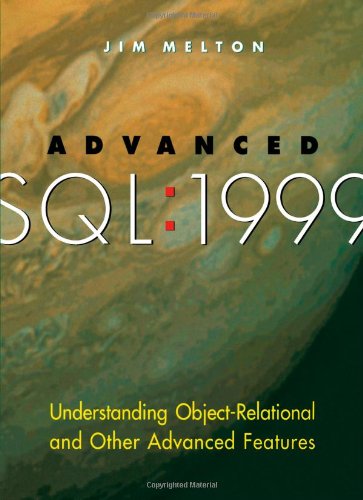

Most ebook files are in PDF format, so you can easily read them using various software such as Foxit Reader or directly on the Google Chrome browser.
Some ebook files are released by publishers in other formats such as .awz, .mobi, .epub, .fb2, etc. You may need to install specific software to read these formats on mobile/PC, such as Calibre.
Please read the tutorial at this link: https://ebookbell.com/faq
We offer FREE conversion to the popular formats you request; however, this may take some time. Therefore, right after payment, please email us, and we will try to provide the service as quickly as possible.
For some exceptional file formats or broken links (if any), please refrain from opening any disputes. Instead, email us first, and we will try to assist within a maximum of 6 hours.
EbookBell Team

4.1
100 reviewsAdvanced SQL:1999 - Understanding Object-Relational and Other Advanced Features is the practitioner's handbook to the standard's advanced features. It is not a re-presentation of the standard, but rather an authoritative, in-depth guide to its practical application. Like its companion, SQL:1999 - Understanding Relational Language Components , which explained the standard's basic features, this book will show you how to make your applications both effective and standard-compliant.
This handy reference has a modular format so you can explore specific topics with ease. It is equally useful to those upgrading from earlier versions of SQL and those with no previous experience. Written by the standard's distinguished editor, Advanced SQL:1999 will complete your knowledge and support your skills like no other book can. * Focuses entirely on the issues that matter to programmers who are connecting applications to databases. * Details SQL:1999's object facilities, including structured user-defined types, typed tables, user-defined routines, and routine invocation. * Examines facilities new to SQL, including those relating to on-line analytical processing (OLAP), management of external data (SQL/MED), and Java support. * Covers the ongoing development of XML support. * Includes appendices that cover the SQL:1999 annexes, a SQL:1999 example using UDTs, status codes, and useful information on the standardization process.